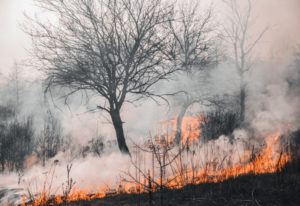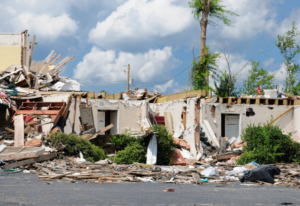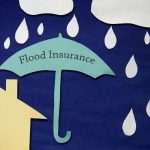Blog Details
Top 4 FAQs: Homeowner’s Insurance and Natural Disasters.
In Florida, natural disasters such as hurricanes, floods, sinkholes, and even wildfires are all a very real possibility. Wildfires are the most frequent natural disaster in the state, despite the fact that its location between the Gulf of Mexico and the Atlantic Ocean renders it particularly vulnerable to powerful storms. This partially explains why home insurance rates in disaster-prone locations are generally higher than the national average. A typical home insurance policy does not provide coverage for most natural disasters. Following a natural disaster, claims could be so high that insurance firms would go bankrupt if all claims were permissible. As a result, insurance providers are reluctant to offer coverage for certain dangers.
Homeowner’s Insurance and Natural Disasters FAQs
Let's examine a few frequently asked questions surrounding natural disasters and homeowner’s insurance.#1 Is My Home Protected from a Natural Disaster?
This is a broad question that depends on the specifics of your homeowner’s policy, and the location you live in impacts the coverage greatly. For example, the majority of plans include coverage for fire damage, but if you reside in a wildfire-prone location, your coverage may differ slightly. This is why it is crucial that you check your policy closely or go to an experienced insurance professional BEFORE disaster strikes. The following damages are frequently covered by homeowner’s insurance. However, always check your insurance policy to ensure that these are indeed covered.- Damage due to lightning and fire
- Wind or hail damage
- Damage caused by smoke
- Volcanic eruption or damage from ash
- Weight of snow, ice, or sleet causing collapse

#2 Why Is My Home Not Protected from a Natural Disaster?
It is certainly understandable to be concerned that your homeowner’s insurance may not protect you from a literal force of nature. However, due to the possibility of expensive natural disaster claims, the majority of natural disasters are not covered by homeowner’s insurance. Since many natural disasters result in total losses, private insurance firms simply cannot bear the risk. Be aware that the following natural disasters are usually NOT covered by typical homeowner insurance policies:- Floods
- Sinkholes
- Earthquakes
- Landslide or a mudslide
#3 Do I Need a Separate Policy to Have Flood Coverage?
Contrary to popular belief, homeowner’s insurance policies do not cover flooding. Flood insurance must be purchased separately. You will need a separate policy, such as from the National Flood Insurance Program, or NFIP, to be covered against flood damage. Many mortgage lenders require flood insurance, especially in light of the fact that so many homes, especially in Florida, are situated in flood zones with varying degrees of risk. You can either obtain flood insurance from the government or from a private company.
#4 Is There a Special Policy for Hurricane Coverage?
There isn't a special hurricane policy that you should seek out. In actuality, hurricane damage is produced by a variety of factors, including wind, floods from storm surge, and rain. As a result, the question of whether a residence is covered by insurance during a hurricane generally depends on whatever aspect of the storm, or its aftermath, caused the specific damage. In many instances, homeowner’s insurance can protect your home, personal belongings and many other items located on your property if a hurricane causes damage or complete destruction. You will need to meet your hurricane deductible, and your insurance company will likely cover the remainder up to your policy’s maximum limit.Need an Experienced Insurance Professional?
Your homeowner’s insurance will cover damage from some Florida natural disasters, but you will need to buy additional insurance to cover damage from floods, hurricane winds, windstorms, and some types of sinkholes. At GWK Insurance, we take pride in helping our clients feel assured should disaster strike. To find out more about how we can get the best coverage for you and your family, contact us today.
Posted in:











Let’s Get in Touch
Your email address will not be published. Required fields are marked *